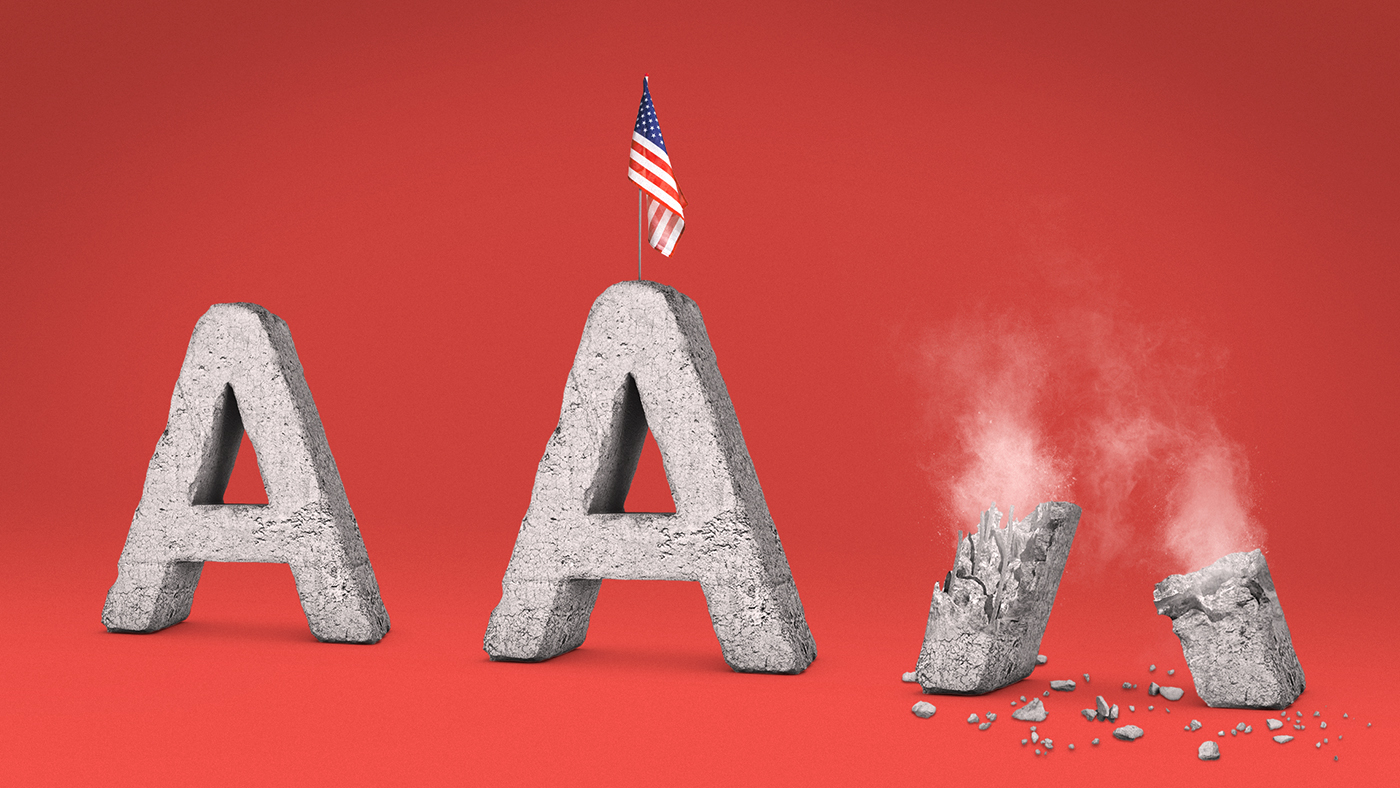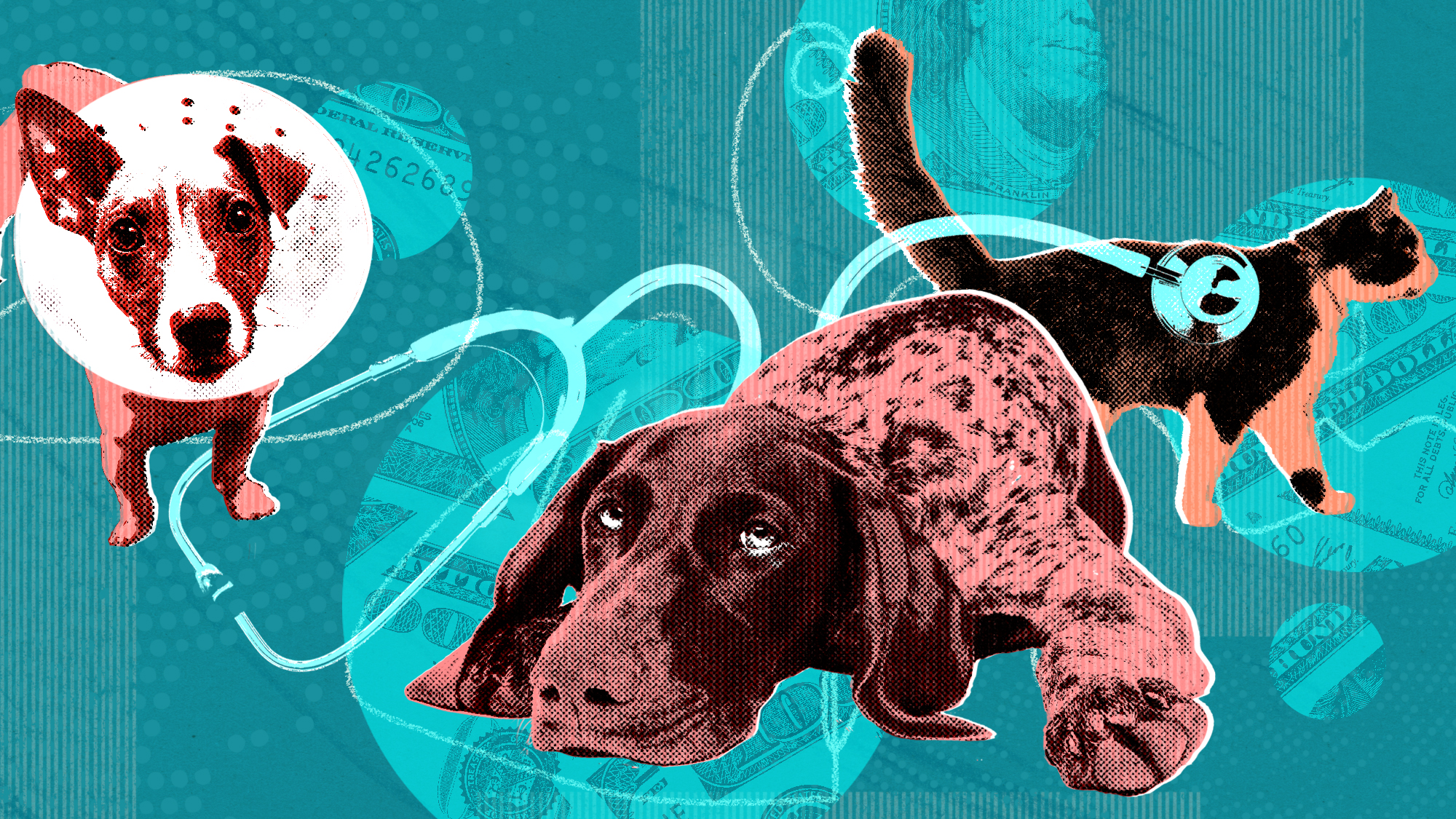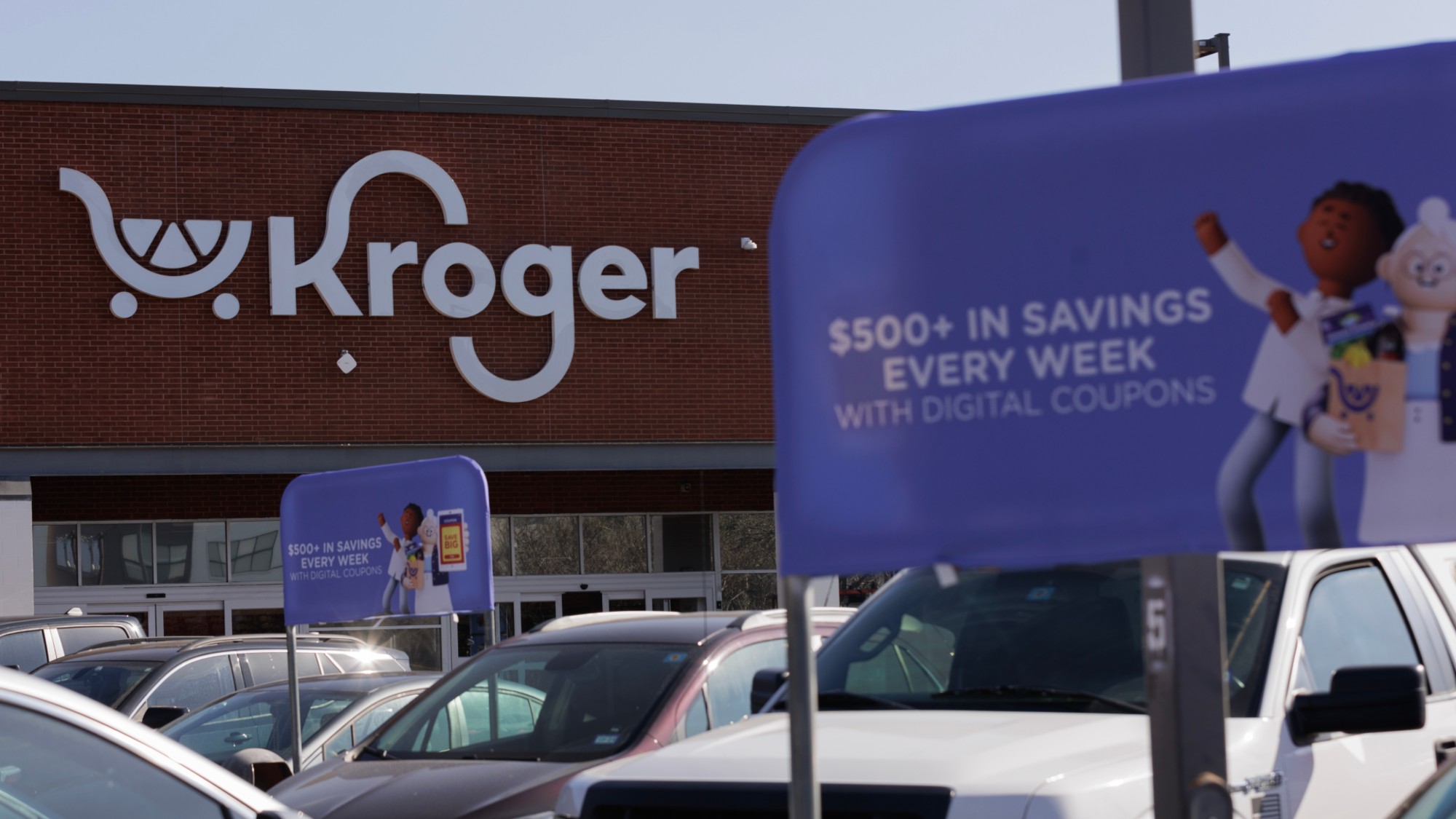Is America still credit-worthy?
Why Fitch downgraded the U.S. debt rating


A free daily email with the biggest news stories of the day – and the best features from TheWeek.com
You are now subscribed
Your newsletter sign-up was successful
America just saw its credit rating drop. The Associated Press reported that Fitch Ratings downgraded the U.S. debt rating from AAA to AA. That was "a move that spurred debate in Washington about spending and tax policies." Fitch said the government's rising debt burden and the country's increasingly ugly political fights — including factors like the Jan. 6 Capitol riot and the recent brawl over raising the debt ceiling — were behind its decision to downgrade.
The announcement "startled lawmakers and policymakers alike," The Hill reported. Treasury Secretary Janet Yellen called Fitch's decision "puzzling" in light of the country's overall economic strength. The United States, she said, "remains the world's largest, most dynamic, and most innovative economy — with the strongest financial system in the world." Fitch officials defended the call: "Clearly, if you look at polarization with both parties … the Democrats have gone further left and Republicans further right, so the middle is kind of falling apart basically," said Richard Francis, a senior director at the rating service.
NBC News reported that the Biden administration cast blame on Republicans. "It's clear that extremism by Republican officials — from cheerleading default, to undermining governance and democracy, to seeking to extend deficit-busting tax giveaways for the wealthy and corporations — is a continued threat to our economy," the White House said in a statement. Why did Fitch downgrade U.S. debt? What will it mean for taxpayers and investors?
The Week
Escape your echo chamber. Get the facts behind the news, plus analysis from multiple perspectives.

Sign up for The Week's Free Newsletters
From our morning news briefing to a weekly Good News Newsletter, get the best of The Week delivered directly to your inbox.
From our morning news briefing to a weekly Good News Newsletter, get the best of The Week delivered directly to your inbox.
What are the commentators saying?
"Why is anyone surprised?" the Wall Street Journal asked in an editorial. Fitch's new rating "captures the unseriousness of America's economic decision-making." The federal deficit is growing by leaps and bounds — $1.39 trillion this fiscal year, up 169% from the year before. The problem is only going to get worse as Baby Boomers retire, but neither President Biden nor Donald Trump have shown any inclination to rein in entitlement spending. No wonder Fitch downgraded America's credit. "It's a no-confidence vote in U.S. political leaders, and that starts at the top."
"To whatever extent Fitch's downgrade is based on a perceived weakness in the economy, that's just wrong," Timothy Noah wrote at The New Republic. Still, the downgrade is no surprise: Republicans were behind the Jan. 6 insurrection, and Republicans have brought the country to the brink of insolvency several times over the last dozen years with debt ceiling showdowns during the Obama and Biden administrations. "In downgrading the U.S. from triple-A to AA+, Fitch is merely acknowledging the Republican chaos we've all witnessed."
There's no reason to panic, The Washington Post editorialized, but Americans "should not dismiss concerns about the national debt's long-term trajectory." That said, Fitch's rationale was flawed: There may be fights over finances and the debt ceiling but lawmakers haven't ever actually defaulted on U.S. debt obligations. For investors, "U.S. debt remains one of the safest assets on the planet." American leaders would still be wise to rein in the country's spending, however. "No one knows when or whether the debt will reach a crisis point, but the risks grow as the debt level swells."
What's next?
The bottom-line question: Will Fitch's lower rating make it more expensive for the U.S. government to borrow money? Probably not for now, Fortune reported. Usually, a credit downgrade forces debt issuers — in this case, the American government — to pay investors a higher interest rate "to compensate for the potentially higher risk of default." That doesn't seem to be a short-term risk: "Few economists think that such an outcome will actually occur." The U.S. government bond market has long been one of the safest places for investors to park their money. Even with the rating downgrade, "U.S. Treasury securities are essentially in a class by themselves."
A free daily email with the biggest news stories of the day – and the best features from TheWeek.com
Still, the initial reaction to Fitch's downgrade was expectedly bad: Stock markets slumped after the announcement. But the New York Times reported the lower rating is unlikely to deter investors from continuing to buy up U.S.-issued securities. Even after the downgrade, after all, America's credit rating "remains among the highest in the world." The problem is that more fiscal showdowns between Republicans and Democrats in Congress are probably on the way: A government shutdown could happen as soon as this fall.
Joel Mathis is a writer with 30 years of newspaper and online journalism experience. His work also regularly appears in National Geographic and The Kansas City Star. His awards include best online commentary at the Online News Association and (twice) at the City and Regional Magazine Association.
-
 Political cartoons for February 21
Political cartoons for February 21Cartoons Saturday’s political cartoons include consequences, secrets, and more
-
 Crisis in Cuba: a ‘golden opportunity’ for Washington?
Crisis in Cuba: a ‘golden opportunity’ for Washington?Talking Point The Trump administration is applying the pressure, and with Latin America swinging to the right, Havana is becoming more ‘politically isolated’
-
 5 thoroughly redacted cartoons about Pam Bondi protecting predators
5 thoroughly redacted cartoons about Pam Bondi protecting predatorsCartoons Artists take on the real victim, types of protection, and more
-
 Trump wants a weaker dollar, but economists aren’t so sure
Trump wants a weaker dollar, but economists aren’t so sureTalking Points A weaker dollar can make imports more expensive but also boost gold
-
 The longevity economy booms as people live longer
The longevity economy booms as people live longerThe Explainer The sector is projected to reach $27 trillion by 2030
-
 Texas is trying to become America’s next financial hub
Texas is trying to become America’s next financial hubIn the Spotlight The Lone Star State could soon have three major stock exchanges
-
 How could worsening consumer sentiment affect the economy?
How could worsening consumer sentiment affect the economy?Today’s Big Question Sentiment dropped this month to a near-record low
-
 Musk wins $1 trillion Tesla pay package
Musk wins $1 trillion Tesla pay packageSpeed Read The package would expand his stake in the company to 25%
-
 From candy to costumes, inflation is spooking consumers on Halloween this year
From candy to costumes, inflation is spooking consumers on Halloween this yearIn the Spotlight Both candy and costumes have jumped significantly in price
-
 Rising costs are making it harder for people to afford pets
Rising costs are making it harder for people to afford petsUnder the Radar Shelters are filling up as a result
-
 Grocery stores under fire for overcharging during cost-of-living crisis
Grocery stores under fire for overcharging during cost-of-living crisisThe Explainer A recent investigation has put the spotlight on Kroger, but it is not the only chain being pinpointed
